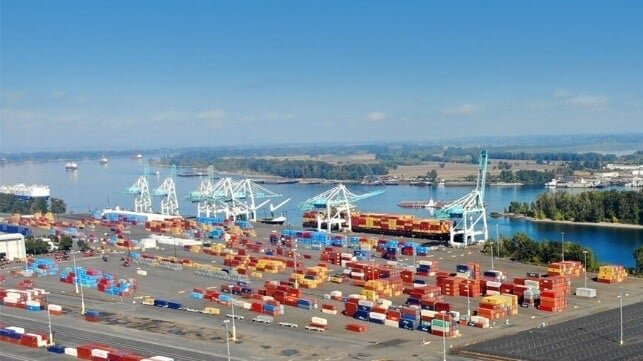Port of Portland Reaches Agreement for Future Management of Container Terminal
Months after facing the possibility of suspending container operations due to financial losses, the Port of Portland in Oregon has secured a framework agreement for the management of the state’s only international container terminal. The port, currently operated by the state with government support, is looking towards a new future under the management of California-based Harbor Industrial.
Harbor Industrial, known for providing stevedore services and port upgrades, is set to take over the long-term operation of Terminal 6 in Portland. This decision marks a significant turnaround for the port, which has been embroiled in disputes with unions and struggling to attract new operators.
Oregon’s Governor, Tina Kotek, intervened in the situation in May 2024, offering state aid to bridge the port’s budget gap after private operator negotiations fell through. Governor Kotek emphasized the port’s importance to the state’s economy, providing a crucial transportation alternative for businesses moving goods such as seafood, animal feed, and building supplies.
Despite challenges like port congestion and geographical limitations, including its distance from the ocean and shallow river depth, the Port of Portland remains optimistic about doubling its volumes to support the new operator. The framework agreement with Harbor Industrial hinges on Oregon’s commitment to investing $20 million in terminal improvements.
The agreement outlines a timeline for finalizing terms over the next six months, with Harbor Industrial expected to assume long-term operations. In the short term, the state is poised to provide $5 million to offset operating losses from container operations, underscoring the significance of maintaining the port’s operations and the jobs it supports.
Earlier plans to suspend container operations in October 2024 sparked protests, prompting the Governor to intervene and devise a plan to rescue the operation. Terminal 6, equipped with berths for five vessels and seven container cranes, plays a vital role in the region’s trade, with a focus on RoRo and bulk cargo that would have been unaffected by the potential suspension of container operations.

